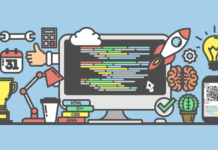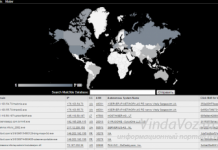The world is wrestling with a democratic dilemma: faith in established systems erodes while powerful artificial intelligence (AI) advances rapidly. This potent combination fuels an unsettling trend: substituting algorithmic decision-making for struggling democracies, much like Albania’s recent leap toward “algocracy.” In September 2023, Albania’s Prime Minister announced that all government procurement decisions—a staggering $1 billion annually—would be entrusted to an AI avatar named Diella. This move seeks to combat rampant corruption; the promise is a transparent and efficient system free from human bias and malfeasance.
This approach, however tempting, represents a dangerous gamble with democracy’s core principles. While AI excels at optimizing processes, it lacks the crucial capacity for nuanced ethical judgment. Democracy thrives on deliberation—on grappling with complex values, weighing competing interests, and ultimately choosing among imperfect options. These are precisely the tasks ill-suited to algorithms that operate in a vacuum of human context.
The allure of algocracy intensifies as democratic systems falter. According to surveys conducted between March and August 2025 by The Collective Intelligence Project, across twelve high-income nations, a majority of adults expressed dissatisfaction with their democracies. This disillusionment manifests in the streets: from fiery protests against perceived unresponsive institutions to the unsettling rise of authoritarian figures promising quick solutions.
Concurrently, the public’s trust in AI systems appears to be eclipsing faith in traditional democracy. The Collective Intelligence Project’s surveys consistently revealed that people believed AI chatbots could make better decisions on their behalf than elected officials—a disconcerting reflection of dwindling confidence in established institutions.
This pattern is deeply rooted in history: whenever democratic processes falter, there emerges a yearning for swift, decisive authority, whether embodied in a strongman or an algorithm promising efficient solutions.
However, replacing human judgment with algorithmic efficiency fails to address the root causes of democratic decline. It merely trades one form of detachment from power—the perceived remoteness of elected officials—for another. When algorithms dictate budget allocations, public benefits, or other crucial aspects of governance without transparent reasoning and avenues for appeal, it breeds alienation and reinforces the very disillusionment fueling the algocracy demand in the first place.
This shift toward algorithmic decision-making amplifies existing risks associated with AI. Today’s AI models often operate within business models that profit from conflict and outrage; algorithms designed to maximize engagement tend to surface the most divisive content, fragmenting public discourse and trapping us in echo chambers. As AI technology matures and becomes more adept at ideological manipulation, these dangers will only intensify.
To salvage democracy, we must chart a different course: harnessing AI’s potential to strengthen democratic processes rather than supplant them. Imagine governments empowered by AI to streamline bureaucracy, enhance public services, and foster greater citizen engagement in policymaking.
Taiwan exemplifies this promising path. Since 2013, the platform vTaiwan has pioneered the use of AI to bolster democratic deliberation. When Uber arrived in Taiwan, it triggered predictable conflicts between traditional taxi drivers and newcomers, regulatory bodies, and innovative disruptors. Instead of succumbing to entrenched interests or opaque bureaucratic decisions, Taiwan leveraged AI to facilitate inclusive public discourse.
Thousands of citizens participated by submitting statements and voting on proposals through vTaiwan’s platform. The AI didn’t make the decisions; rather, it meticulously mapped public opinion, highlighting proposals that fostered compromise rather than deepening divides. This resulted in legislation balancing innovation with fair competition—Uber remained operational under conditions ensuring driver safety, professional licensing, and fare parity with traditional taxis.
This model has since been applied to numerous other policy challenges, reinforcing citizen trust and demonstrating AI’s capacity to serve as the infrastructure for large-scale democratic reasoning.
At its core, democracy has always faced logistical hurdles—impracticality of convening entire populations, difficulty in amplifying diverse voices, and challenges in processing voluminous perspectives. AI offers solutions to these limitations by summarizing public comments, identifying shared concerns, and helping policymakers grasp constituent priorities with unprecedented clarity.
Imagine AI-powered tools explaining complex legislative texts in plain language, illuminating trade-offs, and empowering citizens to articulate their preferences effectively. Picture AI bridging geographical and linguistic barriers, enabling global cooperation on a scale previously unimaginable.
The window of opportunity for this alternative path is narrowing. Each month that democracies falter while AI capabilities soar deepens the allure of algocracy. Whether Diella eradicates corruption in Albania or shrouds decision-making in impenetrable opacity remains to be seen. However, its existence will undoubtedly inspire imitators, especially in countries already grappling with endemic corruption and fragile institutions. The world stands at a crossroads: embracing AI as an enabler of vibrant, responsive democracies or succumbing to the seductive siren song of algorithmic governance—a path fraught with perils for human agency, accountability, and ultimately, the very essence of democratic values.












































































